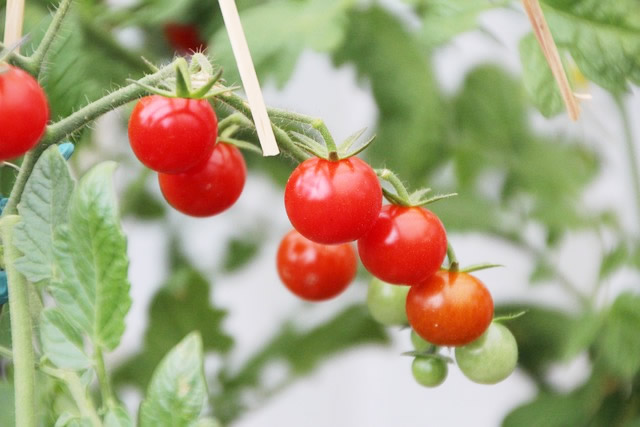先日から「The complex climate truth about home-grown tomatoes -「自家製トマトにまつわる気候の真実」を読んでいます。

・「自家製トマトにまつわる気候の真実」(1)
・「自家製トマトにまつわる気候の真実」(2)
Hawes rebuffs insinuations from some on social media that the study was funded by commercial agricultural firms:
ホーズは、ソーシャル・メディア上で、この研究が営利目的の農業会社から資金提供を受けているとの仄めかしにこう反論する、
rebuff「(好意的提供・援助の申し出に対する)すげない断わり・拒絶」。
insinuation「当てこすり、仄めかし、徐々に入り込むこと、うまく取り入ること」。
“I can say unequivocally that that is not true.”
「そんなことはない、とはっきり言えます。」
unequivocally「明解に、疑いの余地なく」。
The paper lists funding sources as public institutions in multiple countries, for example the National Science Foundation in the US and the Economic and Social Research Council in the UK.
この論文では資金源として複数の国の公的機関、例えば、アメリカの国立科学財団やイギリスの経済社会研究評議会などを挙げている。
Hawes also grows his own veg at home in Tennessee.
ホーズもテネシーの自宅で野菜を栽培している。
“At the end of the summer when we have way too many tomatoes, we’ll make salsa,” he says.
「夏の終わりにトマトが余ったら、サルサを作ります」と彼。
“This paper was written by a bunch of folks who think that urban agriculture is really important.”
「この論文は、都市農業が非常に重要だと考える人々によって書かれているんです。」
What’s the data, then, behind their seemingly disturbing results?
では、一見不穏な結果の背後にあるデータとは何なのか?
To quantify the carbon footprint of conventional agriculture,
従来型農業のカーボンフットプリントを定量化すべく
the researchers scoured academic literature to find data on the five most-consumed fruits or vegetables in multiple countries.
研究者たちは学術文献をあさり、複数の国で最も消費されている5種類の果物や野菜のデータを探した。
They considered things such as fertiliser use and the proportion of these crops typically flown in to a country rather than produced domestically.
そして肥料の使用量や、国産ではなく空輸される作物の割合などを考慮したという。
まあ家庭菜園は炭素排出量が多いから良くない・止めろ、という話ではなく、科学的なデータとして、そういう結果が出ているというと。
となると疑問は、商業的な農業の炭素排出量の少なさです。
なぜ家庭菜園に比べて6分の一なのか?
ちょっと不思議ですよね。
理由は単純明快!「少ないコストでしっかり楽しく学べるから」。
私自身の経験(高機能でビックリ)をびっしり書いていますので、良かったら読んでみてください。
下のバナーからどうぞ!






